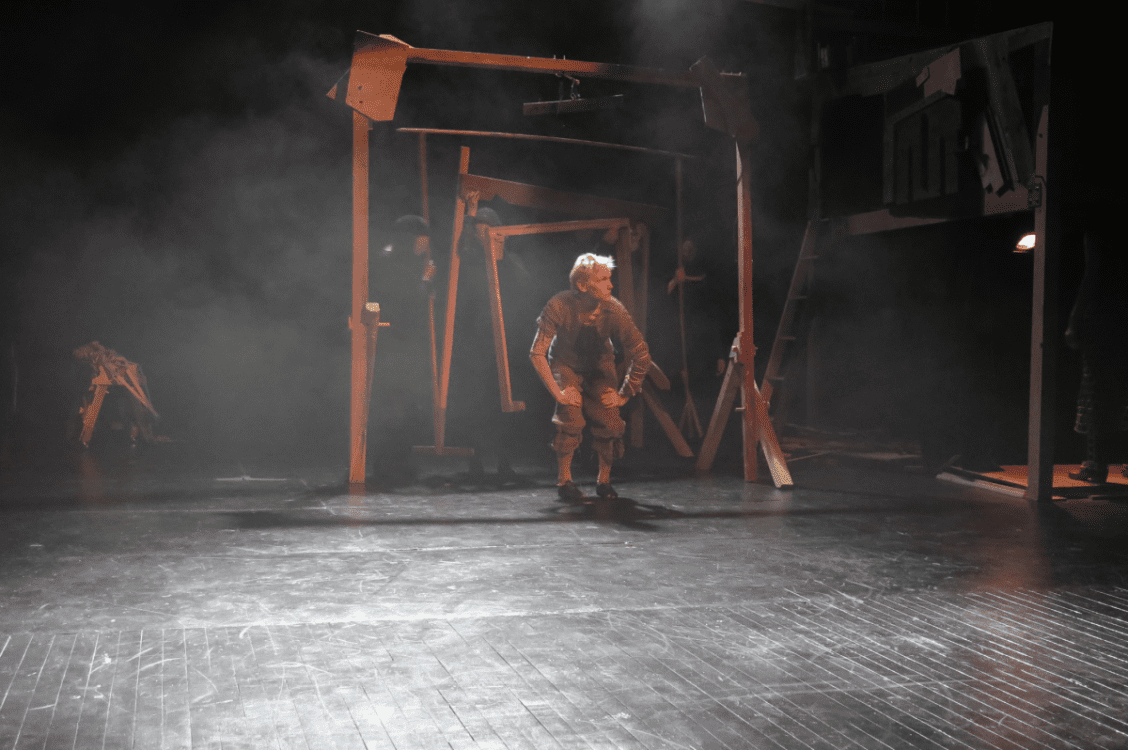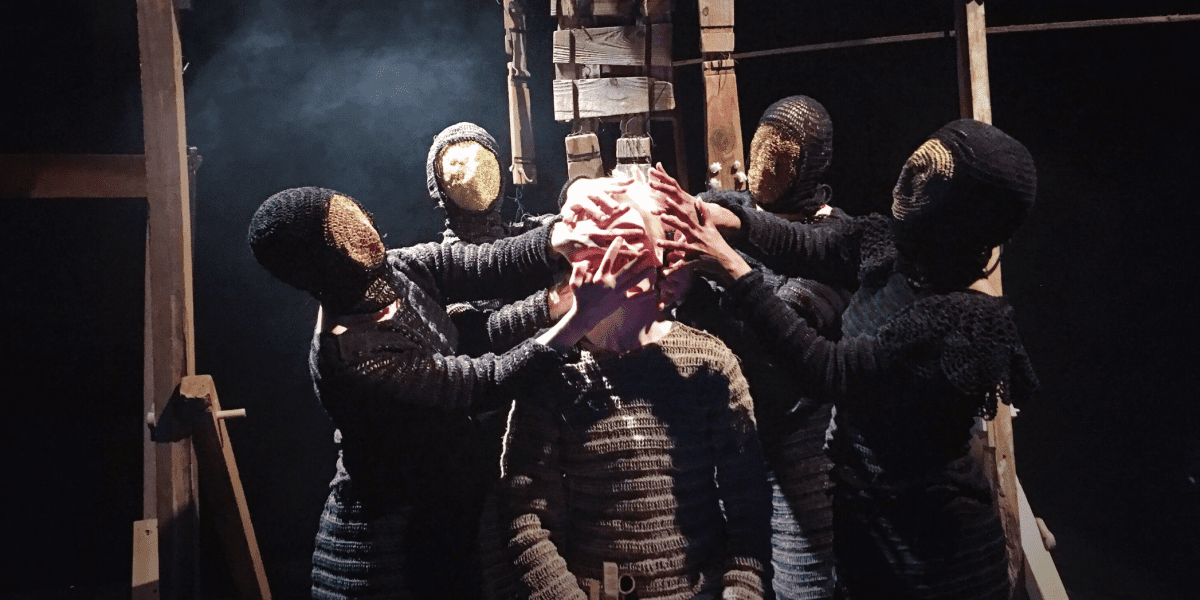Tilt charges at windmills and while it does not crash and burn, it does not quite slay any giants either. The show promises a lot and delivers on maybe half of it.
Tilt reconstructs the story of Don Quixote, the famed imagined knight errant who seeks chivalry and quests in his dying age. However, this version of Quixote relies on set, sound and movement to reveal the chaotic mind of an old man imagining his adventures as a knight, riding his steed into villages and tilting at windmills. A tap dancer (Heather Cornell), hidden in a wooden fort, acts as a Foley artist and foil to our main Quixote (Rachel Cohen). A clever Rube Goldberg machine ominously marks the start of the story. To set the stage, there is an interactive pre-show exhibit which uses the materials that make up the set to create smaller works. If you are venturing to the show, I would recommend checking out the pre-show. The highlight of the production was the clever intricacies of the set and seeing how the outside exhibit is reflected inside the stage adds a layer of enjoyment to the experience.

Peppered throughout the show are moments of ingenuity. I would pay particular attention to Quixote’s feet during the first ‘number’ of the play. However, this very bit of ingenuity actually leads me to a major critique of the production. The world the show creates does not adhere to its own rules. What is established as allowed or not allowed, inside or outside the world, can fall apart as soon as it is inconvenient to insist upon it. The production works to play with space, set, and sound but, without established rules of the world, the show becomes a little inconsistent.
The unknown danger of the set construction – what happens when wood is haphazardly piled on top of the main actor, how the pieces of wood can be deconstructed, the sound of wood and sand hitting the floor – is a precarious and original conceit which is fascinating to observe. The reveal of classic scenes from the Quixote story are fun blips of humoUr and creation. The set work is by far the highlight of the show. Beautifully and almost hauntingly constructed, the set encourages the innovation that pulls the show along. However, the soundscape maintains a singular, almost monotonously slow level which makes the show drag on. It is only a 90-minute production and yet it felt about 30 minutes too long. With cleaner transitions and a bolder take on boundary pushing, Tilt could have been an enchanting new interpretation of the classic Spanish tale. Tilt is a production of Don Quixote without Cervantes’ words, based in movement, mask, and wood – there is no reason it must be constrained to the story or to standard theatre norms.

